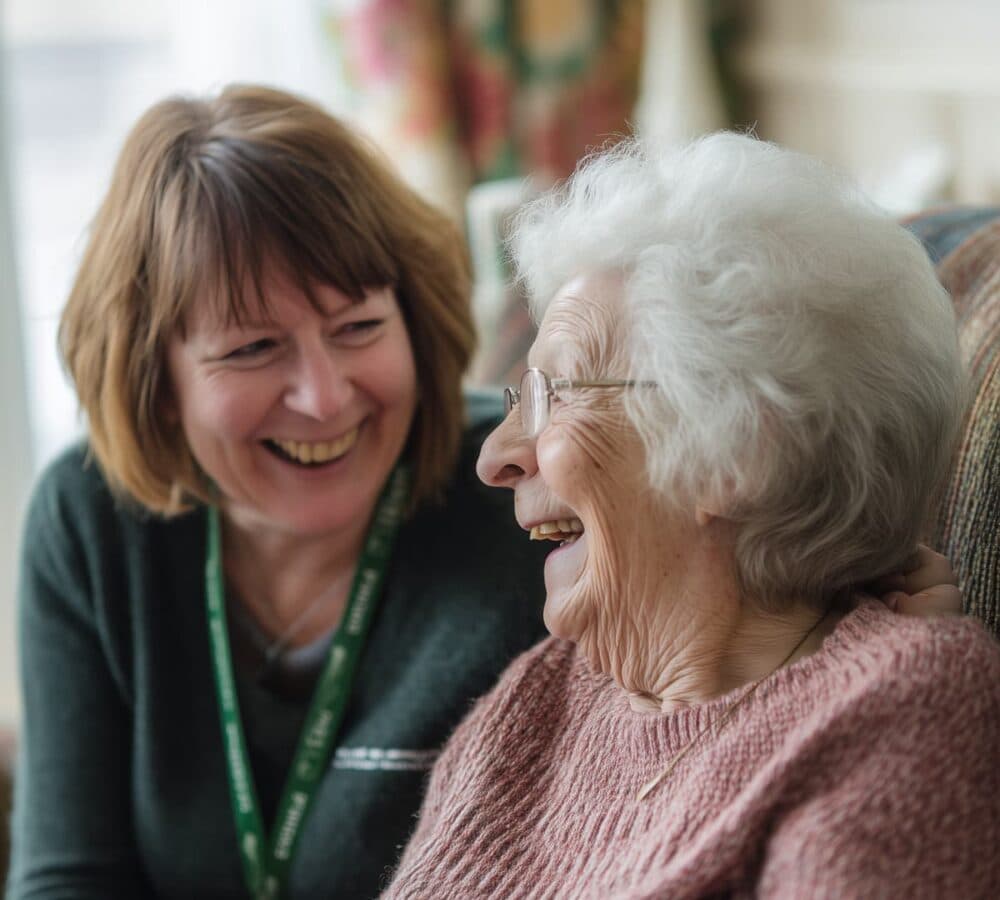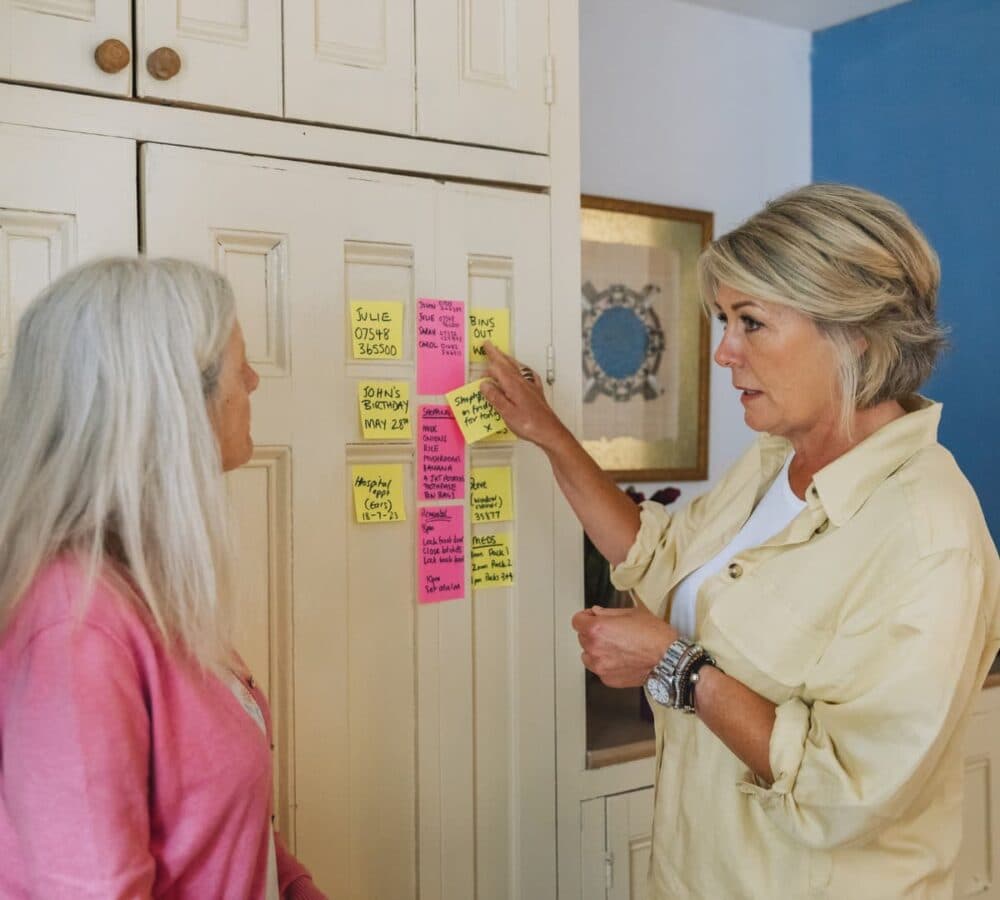Alzheimer’s at Home in West Lothian: A Practical Guide for Families

Every September, World Alzheimer’s Month invites us to learn, talk, and act and offers a reminder that small, steady changes at home can make daily life easier.
In West Lothian, familiar routines and places, whether that’s a gentle loop at Beecraigs, a quiet moment by Linlithgow Loch, or the kettle in a much-loved kitchen, can help someone living with Alzheimer’s feel calmer and more secure.

Start here: the 3–2–1 plan
3 anchors
– Routine: regular times for meals, medication, and rest.
– Space: clear walkways, good lighting, favourite chair in a predictable spot.
– Cues: a big-face clock, labelled cupboards, family photos within view.
2 daily habits
– Listen & pause: allow extra time; match their pace and energy.
– Offer choices: “tea or coffee?”, “cardigan or jumper?” – never a quiz, always a choice.
1 meaningful moment
– Build in one small joy every day: a favourite song, the garden roses, an old postcard of Linlithgow Palace.
Do • Try • Avoid
Do: speak slowly, keep sentences short, and maintain eye contact.
Try: gentle redirection – respond to feelings first, facts second.
Avoid: correcting or arguing; it raises anxiety without helping understanding.
Weekend tweaks that help a lot
- Fit warm, even lighting in hallways and the bathroom.
- Place a “day plan” on the fridge with simple timings.
- Put commonly used items (glasses, remote, sweater) in the same basket by the favourite chair.
- Reduce visual clutter on worktops; add non-slip mats and contrasting crockery to aid depth perception.
- Create a calm corner: a blanket, headphones, and a “comfort playlist.”

How Home Instead West Lothian fits in
Our Care Professionals provide person-centred dementia support shaped around the individual – never rushed, always respectful.
All our Care Professionals are fully-trained in caring for those living with dementia. That means practical know-how (communication, nutrition, safe movement) plus the people skills to notice the “little things” that matter: how someone takes their tea, when the sitting room feels too busy, which song settles the afternoon.
What families tend to value most:
– Consistent faces who build trust over time.
– Unhurried visits long enough to connect, not just complete a task.
– Clear updates so relatives feel informed and involved.
– Flexible support, from a few visits a week to overnight care for round-the-clock reassurance.
– Respite that gives family carers breathing space to rest and recharge without guilt.
Let’s talk about dementia. If you’re exploring Alzheimer’s care at home in West Lothian, we can walk you through options and what the first weeks look like. Reach out to Home Instead West Lothian for a friendly chat on 01506 346046 or to enquire online.
FAQs
What are the early signs of Alzheimer’s?
Memory lapses that disrupt daily life, difficulty planning or solving problems, trouble completing familiar tasks, confusion about time/place, changes in visual perception, word-finding problems, misplacing items, reduced judgment, withdrawal from social activities, and mood or personality changes. If several appear together, speak to your GP for assessment and advice.
How can we make communication easier at home?
Reduce background noise, face your loved one, use short sentences, and allow extra time. Offer choices (not open-ended questions) and use objects, gestures, or photos to support understanding.
What support can Home Instead provide in West Lothian?
Flexible home care tailored to the person: companionship, personal care, medication prompts, meal preparation, respite for family carers, and live-in care, all delivered by dementia-trained Care Professionals who prioritise dignity, safety, and consistency.